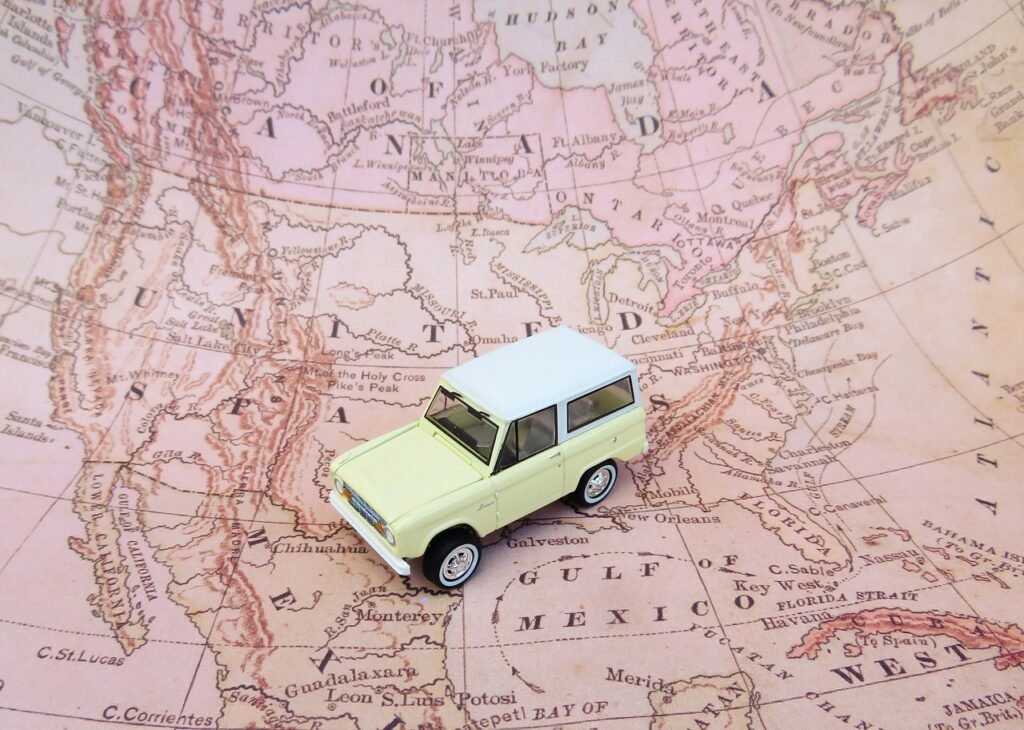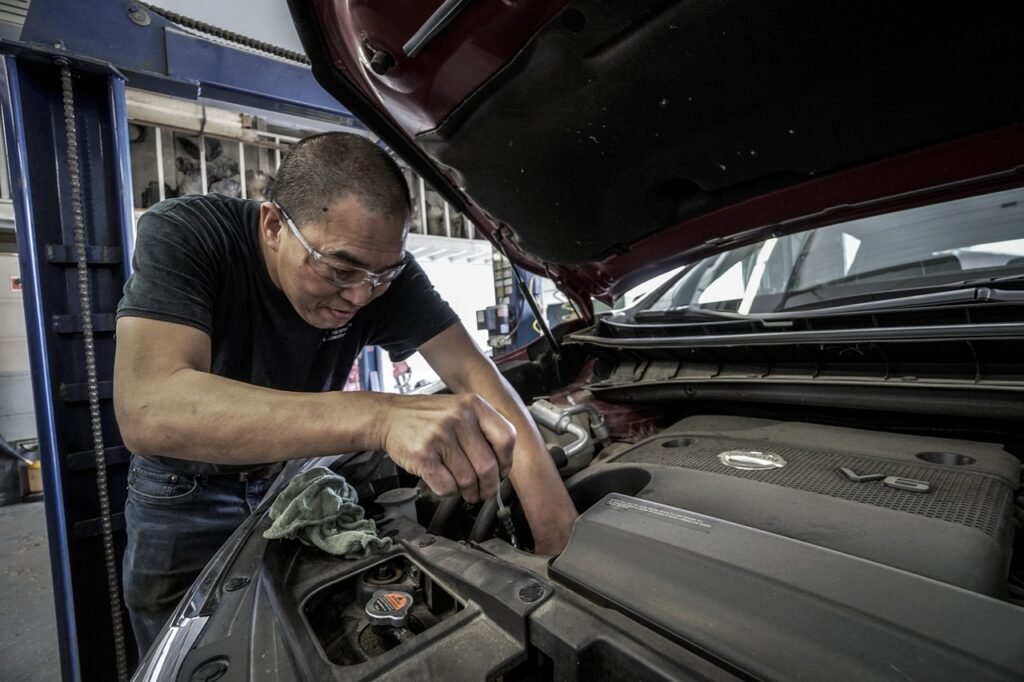So, you’ve enjoyed plenty of weekend getaways and you love the outdoors, but you’ve never driven across the country before. Now, the idea of a big, open road trip has sparked your curiosity, and you’re ready to take that leap into your first cross-country adventure. It can feel a little overwhelming at first—what should you pack, where should you go, and how do you even start?
Don’t worry, you’re not alone. Many of us have been there, and the good news is, with a little bit of preparation, your road trip dreams can become a reality.
In this guide, we’ll walk you through everything you need to know about preparing for your first cross-country road trip. Whether you’re taking a Jeep, SUV, or any other vehicle, we’ll cover it all—packing, planning, staying safe, and of course, making the most of the adventure. You’ll be ready to hit the road with confidence and excitement in no time!
1. Start with the Basics: Plan Your Route

The first thing you need to do is figure out where you want to go. The beauty of a cross-country road trip is that there are so many possibilities! From national parks and mountain ranges to vibrant cities and cozy small towns, you’ll have plenty to choose from.
Think about these questions:
- Do you have a specific destination in mind (like the Grand Canyon or Yellowstone)?
- Or are you more interested in the journey itself, exploring different places along the way?
Once you have a rough idea of your route, map it out. Apps like Google Maps or Roadtrippers can help you plan your trip and even suggest interesting stops along the way. Remember to think about how long you want to drive each day—six to eight hours of driving is usually a comfortable amount for most people. This will give you time to explore, eat, and rest without feeling rushed or exhausted.
Pro Tip: Avoid trying to cram too much into your trip. Road tripping is about the experience, not just ticking destinations off a list. Allow for flexibility in your schedule to explore places you stumble upon.
2. Plan Your Stops: Mix of Nature and City
As an outdoor enthusiast, you’ll probably want to include some incredible natural sights on your road trip. National parks, state parks, and scenic byways are must-sees. But don’t forget to throw in a few city stops as well. Cities offer great food, cultural experiences, and sometimes just a nice break from nature to recharge.
Example: Let’s say you’re driving from the East Coast to the West. You could stop at Shenandoah National Park, take a scenic drive through the Rockies, visit the lively streets of Chicago, or experience the vast beauty of the Utah desert. Each of these spots offers a different experience, keeping your trip exciting and varied.
If you’re unsure where to stop, research some must-visit destinations along your route. Websites like Roadtrippers or forums like Reddit’s road trip communities can help you discover hidden gems and must-see places.
3. Prep Your Vehicle: Road Trip Ready

Now that you’ve got your route planned, let’s talk about your vehicle. Your car is going to be your best friend on this adventure, so it’s important to make sure it’s road trip-ready.
Here’s a checklist to get your vehicle in shape for the long haul:
Get a full inspection: Take your car to a mechanic and ask them to check the tires, brakes, fluids, battery, and alignment. This step is essential to avoid unwanted breakdowns.
Tires: Make sure your tires are in good condition, including the spare. If your tires are worn down, it might be a good idea to replace them before your trip.
Oil change: If you’re due for an oil change, get that done before hitting the road.
Emergency kit: Pack an emergency kit with jumper cables, a tire repair kit, extra fluids, a first aid kit, and a flashlight. You can never be too prepared!
4. Packing Smart: Essentials and Must-Haves
Now for the fun part: packing! You don’t need to bring everything from home, but there are definitely some essentials you shouldn’t leave behind. Since you enjoy outdoor adventures, you’ll want to pack both for comfort and function.
Here are some Essentials for Your Cross-Country Road Trip:
Clothing: Pack for a variety of weather conditions. Even if it’s warm during the day, some areas get chilly at night. Layers are your best friend—bring light, moisture-wicking clothes for daytime, and a warm jacket for the evening.
Camping gear: If you plan on camping, make sure you have your tent, sleeping bag, camp stove, and all the basics.
Food and snacks: Keep a stash of snacks and drinks in the car. Granola bars, nuts, fruit, and water are perfect for when you’re miles away from a rest stop.
Cooler: A good cooler can make a world of difference. You can store drinks, sandwiches, or even perishable items if you plan to cook along the way.
Electronics and chargers: Don’t forget your phone, portable charger, and a car charger to keep your devices powered up.
Maps or GPS: While we all rely on our phones these days, it’s a good idea to have a physical map or an offline GPS app downloaded in case you lose service.
Entertainment: Create a road trip playlist or download audiobooks or podcasts to keep you entertained during long stretches of highway.
Pro Tip: Don’t overpack! You don’t want to feel cramped in your car. Stick to essentials and a few comforts, and keep things organized so you don’t have to dig through piles of stuff every time you need something.
5. Budgeting for Your Trip: Expect the Unexpected
One of the biggest concerns for first-time road trippers is budgeting. How much is this going to cost? The good news is that you have control over your spending. A cross-country road trip can be as budget-friendly or as luxurious as you want it to be.
Here are a few things to keep in mind:
Gas: This will be one of your biggest expenses. Use apps like GasBuddy to find cheaper gas prices along your route.
Accommodations: You can mix and match your overnight stays depending on your budget. Campgrounds are inexpensive or sometimes free, while motels, hostels, or Airbnb options give you a little more comfort.
Food: Save money by preparing your own meals. Pick up groceries or stop at local markets along the way. You can also treat yourself to a few meals at restaurants, especially if you’re visiting foodie cities!
Emergencies: Have a little extra set aside for emergencies or unexpected repairs.
6. Staying Safe and Healthy
Safety is always a top priority, especially on a long road trip. Here are a few safety tips to keep in mind:
Don’t drive when tired: It’s tempting to push through and cover more miles, but driving when you’re tired is dangerous. Take breaks every few hours to stretch, rest, and recharge.
Stay hydrated: Keep a water bottle in the car and sip often. It’s easy to get dehydrated, especially when you’re sitting in the car for long periods.
Have a backup plan: If you’re venturing into remote areas, let someone know your route and check in regularly. In case of emergencies, know where the nearest hospital or service station is located.
Pro Tip: Consider signing up for a roadside assistance service like AAA before your trip. It can be a lifesaver if you break down or lock your keys in the car.
7. Expect the Unexpected: Flexibility is Key
One of the best things about road trips is the unexpected moments and discoveries. You might stumble across a hidden waterfall or take a detour to see a quirky roadside attraction. These spontaneous moments are often the highlights of a road trip!
While it’s important to have a general plan, don’t be afraid to veer off the beaten path and explore something unplanned. Keep your schedule flexible, so you don’t feel rushed or stressed about sticking to a rigid timeline.
Personal Tip: While I’m always very meticulous and detailed when I plan my road trips, I still keep an eye out for interesting places to stop along the way. And I’ve never been disappointed!
8. Enjoy the Journey
At the end of the day, your first cross-country road trip is all about the journey. Take time to soak in the sights, make memories, and enjoy the sense of freedom that comes with being on the open road. Whether you’re hiking through national parks, wandering through city streets, or just marveling at the endless horizon, you’ll create memories that will last a lifetime.
Don’t stress too much about doing everything perfectly. Every road trip is an adventure, and part of the fun is learning as you go. So, buckle up, roll down the windows, and get ready for an incredible experience that you’ll remember forever.
Final Thoughts
Preparing for your first cross-country road trip might feel a little overwhelming at first, but with some careful planning, it’ll be a breeze. From picking your route to packing the right gear, keeping your vehicle in shape, and staying safe on the road, you’re now equipped with the knowledge to tackle this adventure like a pro. Remember, the goal is to enjoy yourself, explore new places, and create memories that will last a lifetime. Happy travels!
Explore more. Fear less.
- Why Road Trips are One of the Best Ways to Clear Your Mind - November 21, 2024
- 10 of the Best Pumpkin Patches in the U.S. - October 23, 2024
- 10 of the Most Colorful Fall Road Trips in the U.S. - October 22, 2024
